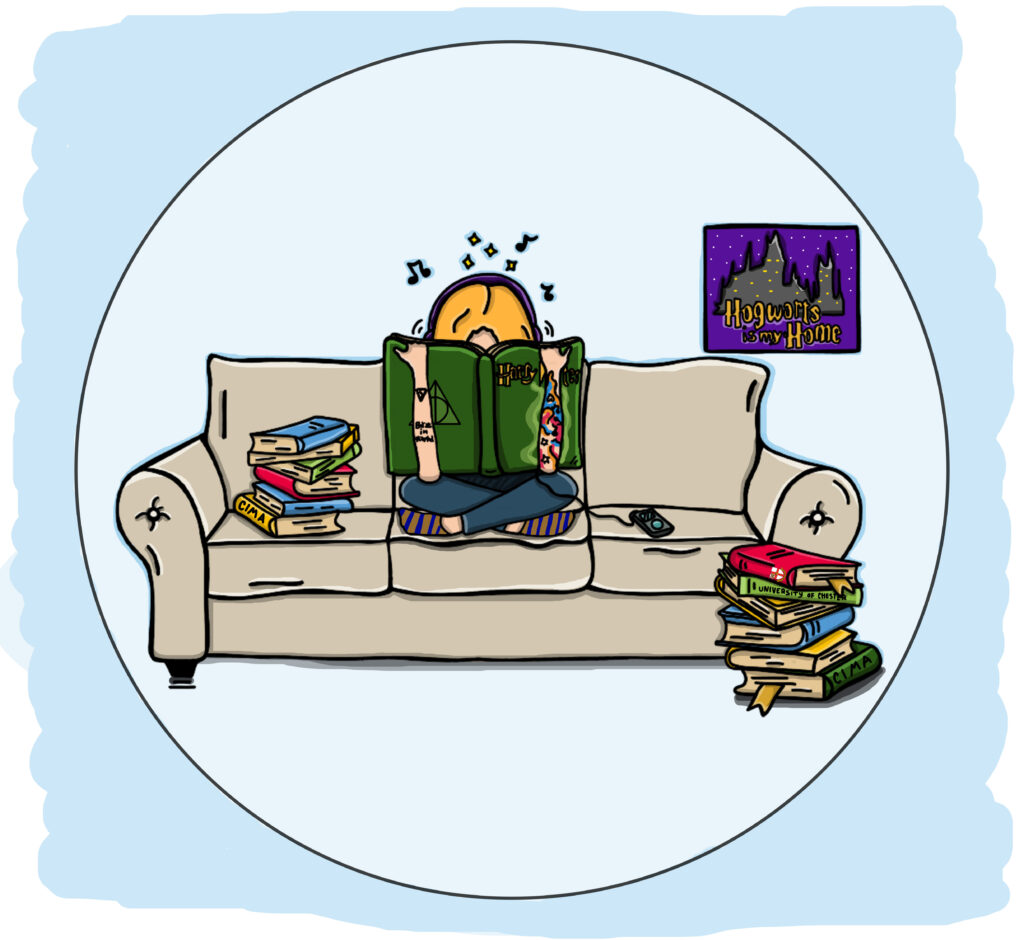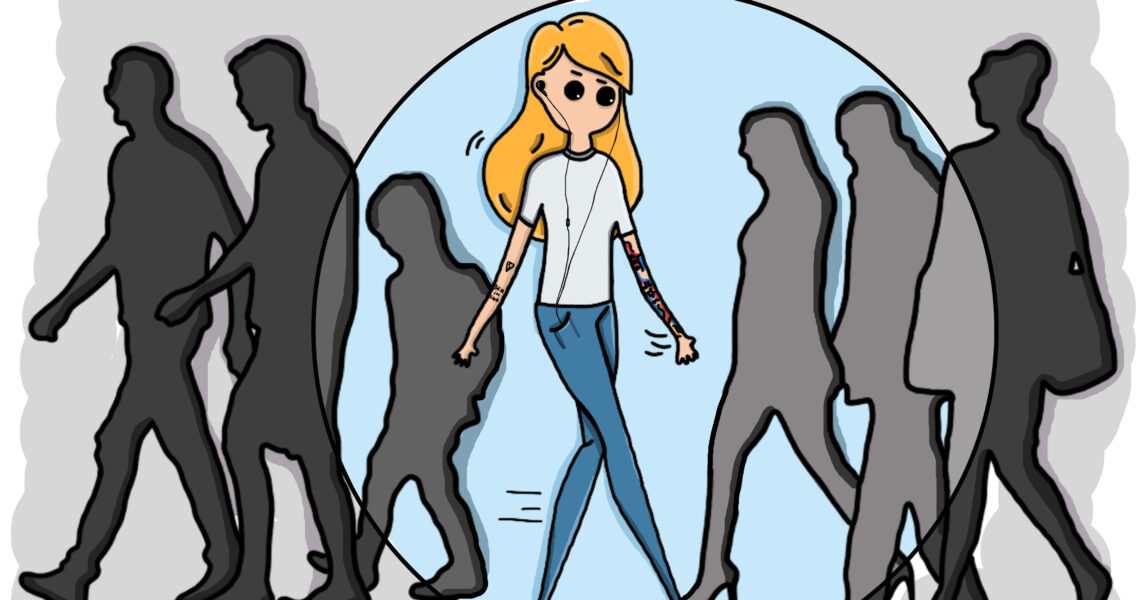In our own autistic world
I am happiest when I am in my own bubble. It’s a hard thing for neurotypicals to understand. Before my diagnosis it was hard for my friends and family to understand that I was perfectly happy and content shut away in my room. The confusion came from a well-intended motive, they were worried I was unhappy to be alone. Post-diagnosis there is a lot more ease with accepting it is not a personal thing, I literally need alone time and thrive of being in my own world, my own bubble.
Often the phrase ‘in their own world’ is used to explain an autistic. And again, people worry that we aren’t happy. We are. That is our own safe bubble that most of the time just naturally happens and sometimes I work very hard to keep the bubble there to protect myself.
My bubble is one of harry, education and music. It is one of freely stimming, feeling calm and content, surrounded by the things that make me feel safe. I know Harry Potter inside out, it is very much a home to me, education is built on routine and knowledge, it is my safety net, and music I am very connected to and calms me. I can very easily lose myself into my own mind with these.

My sensory input is all or nothing. This is firstly why I wear headphones, and secondly why I know I am unsafe on my own in busy or unpredictable situations. I have two options when walking through a crowd:
1 – Go into my bubble. This is the instinctive option that my mind wants to do. Headphones in, eyes to the floor. The downfall is I won’t notice surrounding dangers. I am, however, happier in this bubble and it costs me far less in mental exhaustion.
2 – Come out of the bubble. Now I see everything. I hear everything. People are crossing in the street, cars number plates, endless parts of conversations, my mind acknowledges and tracks every movement and noise until it’s buzzing around my brain. The downfall is sensory overload. There is a reason we call it overload, our brain literally overloads with information. Somewhere in there is how fast that car is going and if I have time to cross, but deciphering it from all the mental noise is incredibly difficult.
I generally go in and out of the bubble while I am out of my flat. A skill that it is worth mentioning would not be possible for a child. As an autistic adult gets older we learn coping methods. I may be the only one on the planet to open and close my bubble, but other adults will have their own coping mechanisms.
I walk through the busy part of town very much in my bubble and then I cross roads and walk passed building sites out of it. This is completely reliant on me having the mental energy to control it. Days I can’t escape to the bubble I face overload, and there are no words for that feeling. It hurts. Days I can’t manage to come out of the bubble, stuck in my own world, I get myself in dangerous situations, usually with cars.
This is why I am significantly happier out of my flat when I am with someone. This is why I can not go to new places alone. My commute to and from work is a calculated exercise of balance, knowing when and where I need to be alert to my surroundings. Outside of this routine I would need to be outside of my bubble and it would be overwhelming very quickly. I do not go to new places on my own, I could not.
I can cope in most situations if I am with someone that I see as a ‘safe person’. If I have trust in that person, I anchor myself off them. Essentially, I push my bubble out far enough that we are both in it. Imagine I am walking through the street with a safe person. In my bubble I can focus on myself and my very immediate surroundings, essentially the floor immediately in front of me, but also the distance between myself and the safe person. This enables me to be guided through the situation by them. I do not need to process the crowds, the noise, the movement, I do not need to judge the gaps in the people, the pace of a walk, I merely need to follow the gap between them and I. It is the mental equivalent of holding my hand and steering me through.
The danger of the bubble comes from the intensity in which we lose ourselves in our own world. My eyes are on the floor, but my mind is thinking about harry, or what I am currently studying, or the rhythm of the song I am listening to. My mind is in a safe place, it is not in a scary and noisy world.
Supporting and understanding someone on the spectrum relies on understanding when they need to withdraw into themselves and how to help them get there. Without making them feel guilty about needing it. The best way to support us when we struggle with overload is to help us block it out while also keeping us safe. E.g., putting ear defenders onto a child while taking their hand or helping to find a quiet room for us to safely (and away from judgement) switch off.
Every autistic person is different. It is a spectrum. The vast majority of the time just ask them how is best to support them in that situation (including children! if a child doesn’t want to be touched while they are struggling then only touch them to prevent danger). Once an autistic hits shutdown, overload or meltdown it is often too late to do this. Make sure you know before hand how to support them. Do they want you to take their hand or are they touch averse? It’s not offensive to ask. My best friends and most supportive family members are ones that ask and really listen to the answer, they support me how I need it. I’ve had friends take my hand (ones I am not touch averse to), I have had friends draw the harry symbol to help calm me down. Learn our language and become part of our world, our bubble.
Different. Not broken.
Found this blog helpful? You can support my writing and say thanks by buying me a coffee 🙂
